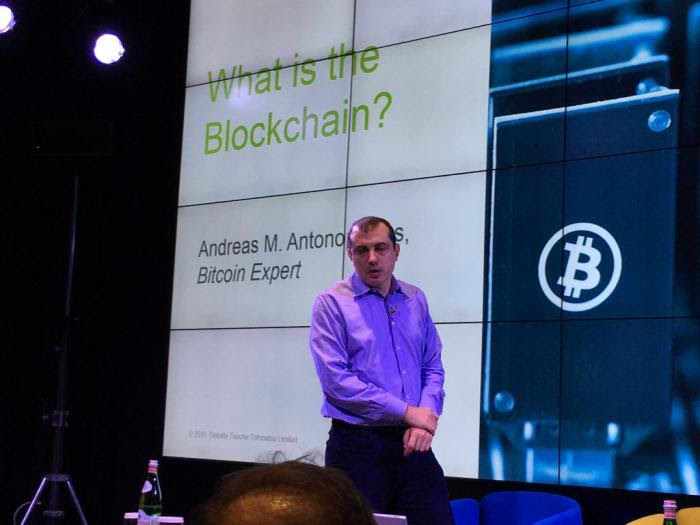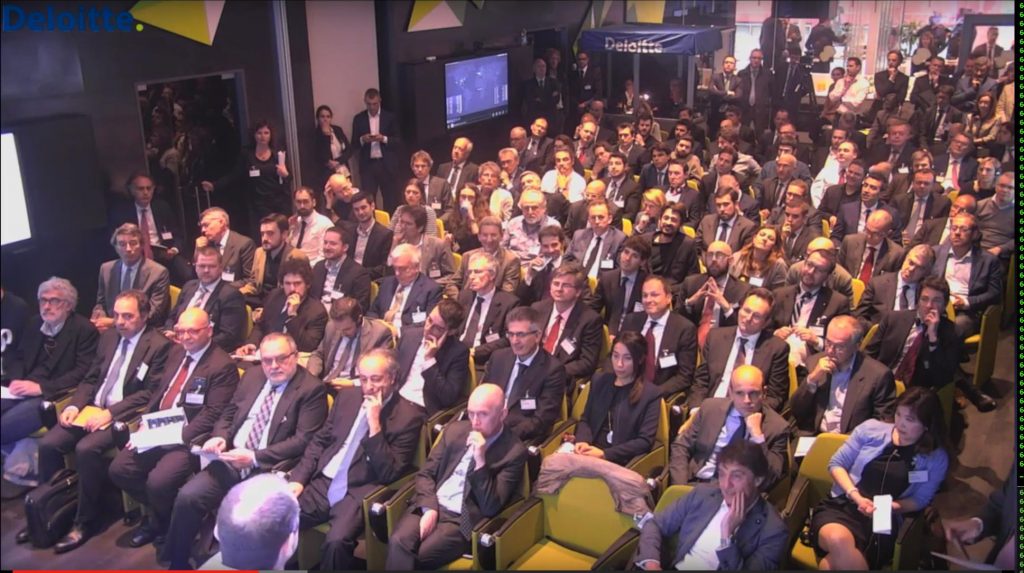
Blockchain: Intranet of Money?
Bitcoin expert Andreas Antonopoulos recently gave a talk — titled What is the Blockchain? —at a Deloitte venue in Milan, Italy. The event’s focus was on how blockchain technology will impact the financial services industry (FSI).
Speaking in front of FSI executives, regulators, entrepreneurs, and academics from around the globe, the author of the book Mastering Bitcoin did not shy away from referring to the blockchain as the “Intranet” component of Bitcoin’s “Internet of money.”
“Blockchain is one of several components that make Bitcoin work and if you focus too much on blockchain, you may miss the point,” he said, as the audience braced themselves.
The private or so-called “permissioned” blockchains currently being developed by big banks differ from the Bitcoin blockchain in that they will require permission to use. On the other hand, the open-access feature of Bitcoin, which Antonopoulos equated to that of the global internet, is its greatest strength.
“What’s the most important technology that makes the internet work,” he rhetorically asked the audience. “TCP/IP? Packet switching? TLS? But to take the internet and consider it only as a packet switching network means that …the internet and your local area network are equivalent. Are they? Really?”
He continued:
Was the real opportunity to be able to do packet switching networks or is the real power of the internet the fact that it is open, global, transnational, borderless, censorship resistant, open-access, and anyone can innovate without permission?
Antonopoulos cited the early days of the internet when companies tried and failed to create their own closed-access networks, drawing parallels with the private blockchain efforts of today. He noted how previous attempts resulted in “islands” that were “stagnant” of any innovation whose security decreased over time as the internet quickly grew.
“What the internet did for communication, Bitcoin is doing for finance,” stated Antonopoulos.
‘The Open Blockchain Will Change This World’
 Antonopoulos continued that in its seven years of existence, no other cryptocurrency has been yet able to match Bitcoin’s network effect despite admitting that it’s “not the best” in terms of technology. “But in technology very often best is not what wins,” he explained. He pointed out how TCP/IP became the dominant internet protocol despite its shortfalls that included scaling problems.
Antonopoulos continued that in its seven years of existence, no other cryptocurrency has been yet able to match Bitcoin’s network effect despite admitting that it’s “not the best” in terms of technology. “But in technology very often best is not what wins,” he explained. He pointed out how TCP/IP became the dominant internet protocol despite its shortfalls that included scaling problems.
“And yet TCP/IP was good enough with network effect that it became irreplaceable,” he added.
But it is Bitcoin’s open-access nature specifically that has given it the biggest market cap, making it the most secure and most valuable network-centric currency to date; something that Metcalfe’s Law would corroborate.
Moreover, Bitcoin is already accepted by thousands of merchants around the world at brick-and-mortar stores and online. It has the most developed infrastructure (wallets, exchanges, ATMs etc.) among cryptocurrencies and is easier to use online than any other form of money to date. This is exactly why Antonopoulos calls Bitcoin the “de facto money of the internet” — at least for now.
“Does that mean that Bitcoin will always be the de facto Money of the Internet?” he asked. “No. What is special about Bitcoin is that it represents the open blockchain. […] It connects the vast number of underbanked, unbanked people around the world; some 4 billion people who could become connected through a simple Android phone or even a simple Nokia text messaging phone to the global financial network.”
He added:
“The open blockchain will change this world. And today there is one open blockchain that matters, and that is Bitcoin.”
You can watch the full talk here:


